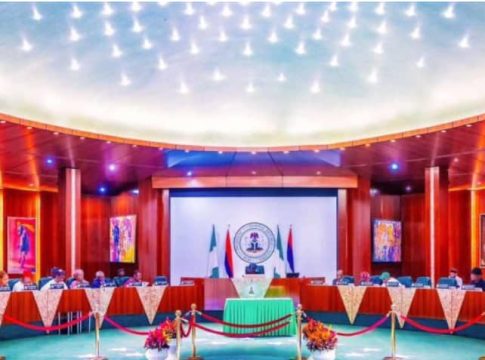In a surprising turn of events, the Federal Government and state governors have reached a tentative agreement to delay the implementation of the Supreme Court’s landmark judgment on local government autonomy for a period of three months.
This decision comes after concerns were raised about the potential impact on salary payments and operational viability, sparking fears of a looming financial crisis.
The Supreme Court had ruled in favor of financial autonomy for the 774 local governments in Nigeria, directing the Accountant-General of the Federation to pay allocations directly into their accounts. However, the Federal Government and governors are seeking a temporary reprieve to address the challenges associated with the judgment, citing difficulties in implementing the direct payment of allocations to local government accounts.
READ MORE: Experts Warn Against Giving Peanuts To Babies Due To Choking
According to sources close to the Nigeria Governors’ Forum (NGF), the Federal Government is facing significant challenges in implementing the ruling, including concerns over the impact on salary payments and operational viability.
The NGF has expressed worries that only a few local government areas in the country can actually survive and pay bills conveniently from Federation Account Allocation Committee (FAAC) allocations and internally generated revenue.
The Minister of Finance, Wale Edun, attributed the delay to the need for further study and implementation of the Supreme Court’s proceedings.
“The process is still in its early stages, and further steps will be taken once the full details are available,” Edun explained.
He also revealed that a committee has been set up by the Federal Government to examine the practicability of the judgment.
Meanwhile, the Association of Local Governments of Nigeria (ALGON) has threatened to initiate contempt proceedings against state commissioners of finance if they fail to comply with the Supreme Court order.
However, another faction of ALGON has denied issuing a legal threat, adding to the confusion and uncertainty surrounding the issue.
Governors have expressed mixed reactions to the judgment, with some welcoming the relief from financial burdens and others raising concerns about the potential consequences for salary payments and operational viability.
Oyo State Governor, Seyi Makinde, called for a homegrown solution to ensure transparency and prevent suffering among the people.
As the three-month moratorium begins, the Federal Government and governors are seeking a permanent solution that aligns with the objectives of financial autonomy.
The Nigeria Governors’ Forum is exploring a political solution to manage the fallout, while the Federal Government is working to address the practical implications of the judgment.
In the midst of this uncertainty, local government chairmen are urging the Federal Government to respect the Supreme Court judgment and implement the direct payment of allocations to their accounts.
The chairmen have confirmed that the July allocation for local governments was sent to state commissioners of finance, sparking fears of a deliberate attempt to undermine the autonomy of local governments.
As the situation continues to unfold, one thing is clear: the fate of local government autonomy hangs in the balance, and the next few months will be crucial in determining the future of grassroots governance in Nigeria.



